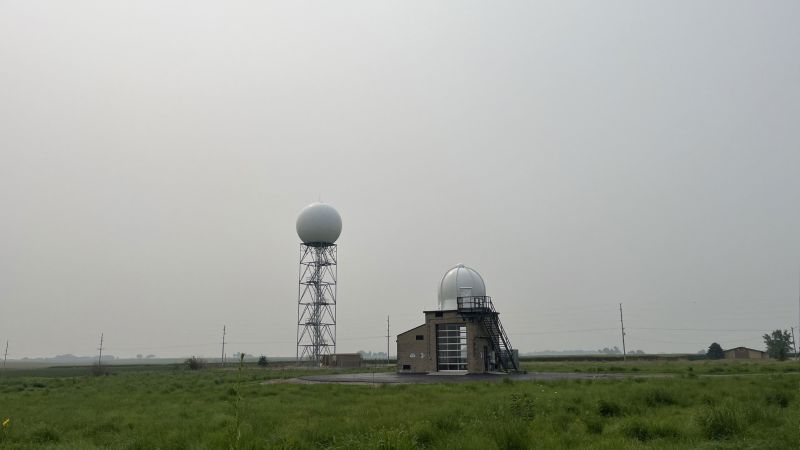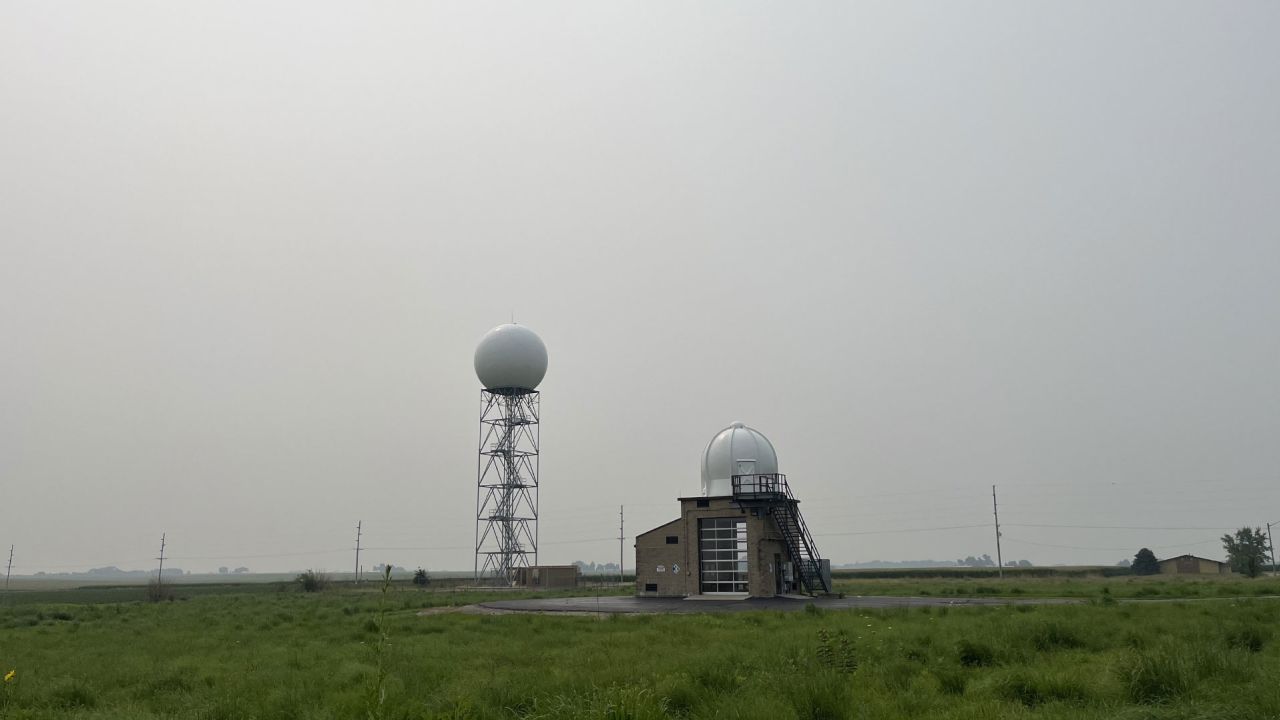CNN
—
Canadian wildfire smoke is bringing unhealthy air across the northern tier of the United States to start the week, triggering air quality alerts for more than a dozen states from Montana to Vermont.
Forecasters predicted around 70 million people would see decreased visibility and poor air quality, including residents of Chicago, Detroit, New York, St. Louis and Cleveland.
On Monday, the plume of smoke stretched across the US like a noxious belt with several states experiencing “unhealthy” air, which is Level 4 of 6 on the Air Quality Index. Some of the unhealthy air stretched as far south as northern Alabama on Monday morning.
The smoke could linger into Tuesday across parts of the East Coast, but is not forecast to reach the same “hazardous” levels there as it did in early June. The smoke should get less potent as the week progresses, according to the Weather Prediction Center.
The entire state of New York is under air quality health advisory due to smoke from wildfires in western Canada. “The smoke is expected to cause the Air Quality Index to reach levels in Upstate communities which are ‘Unhealthy for All’ New Yorkers,” Gov. Kathy Hochul said in a news release.
The state is activating emergency notifications on roads and making masks available for distribution, Hochul said.
Winds will continue to push the smoke eastward, bringing a smoky haze to the Northeast early in the week.
The plume was birthed from nearly 400 fires ignited in Canada’s province of British Columbia in the past week, nearly half of which were started by 51,000 lightning strikes from thunderstorms, the British Columbia Wildfire Service said. Some of those thunderstorms were “dry” or produced inconsequential amounts of rain to help quench any fires – a dangerous prospect in a province experiencing the worst level of drought.
The province is expected to receive federal assistance to help with its ongoing wildfires, according to a Sunday news release from Public Safety Canada.
There are more than 880 fires burning throughout Canada and the Canadian Interagency Forest Fire Centre says at least 580 of the current wildfires are “out of control,” according to its website.
On Sunday, Canadian authorities announced a second firefighter had died battling the wildfires.
“We regret to share the tragic news that a firefighter from Fort Liard has passed away from an injury sustained while fighting a wildfire in the Fort Liard District Saturday afternoon,” Canada’s Northwest Territories said in a statement.
On Thursday, officials had confirmed the death of a firefighter responding to a blaze near Revelstoke, a town in southeastern British Columbia.
“I’m incredibly saddened by the news from the Northwest Territories, that another firefighter has lost their life battling wildfires,” Canadian Prime Minister Justin Trudeau tweeted Sunday. “To their family, their friends, and those they were heroically serving alongside: Canadians are keeping you in our thoughts. We’re here for you.”
Wildfire smoke contains tiny pollutants known as particle matter, or PM 2.5, that can get into the lungs and bloodstream once inhaled. These pollutants most commonly cause difficulty breathing and eye and throat irritation, but have also been linked to more serious long-term health issues like lung cancer, according to the US Centers for Disease Control and Prevention.
Parts of the US will be at risk of smoke for the foreseeable future depending on weather patterns and fire flare-ups because Canada is experiencing its worst fire season on record. More than 24 million acres have burned so far this year, an area roughly the size of Indiana.
British Columbia has had more than 1,000 fires start since April. Those fires have already burned through nearly three times the amount of land compared to an average year in British Columbia over the last 10 years, the province’s wildfire service said.
Sumber: www.cnn.com







